A Correction and A Request
In the last issue of It All Connects, I shared with you a poem from my second, Words For What Those Men Have Done. Some of you, I know, clicked on the link that took you to the website for Guernica Editions, which published the book in 2017. Unfortunately—and I forgot to account for this when I sent my newsletter out—the book is now out of print. If you clicked on the link thinking you might be interested in getting a copy of the book, please consider contacting me directly. (You can also simply reply to this email.) I have copies of the book and I’ll be happy to discuss getting one to you.
Also, if you, or anyone you know, has connections with a publisher that is willing to discuss putting books that have gone out of print back on the market, I’d love to discuss Words For What Those Men Have Done With You. Circumstances made it impossible for me to do the kind of promotion the book deserved when it came out, and I do think, in part because I think the poems in it have become relevant again, it’s a book that should be out there. You can read a review of the book here.
Four Things To Read
Why Do People Make Music?, by Carl Zimmer: “Across cultures, the researchers found, songs share certain features not found in speech, suggesting that Darwin might have been right: Despite its diversity today, music might have evolved in our distant ancestors.” There is a reason people call music “the universal language.” Put any number of musicians in a room together, with their instruments, and even if they cannot communicate any other way, they will find some way of making music together. This article summarizes a studywhich suggests that there may be a set of acoustical features shared by all sung music, regardless of its culture of origin. Zimmer also links to another study which found that there are neurons in the brain that “only responded to singing — not speech or music played on instruments.” When I was getting my MA in TESOL—and my MA was really an applied linguistics degree—one of the more fascinating topics of discussion in the field was the search for language universals, features shared by all languages. The question of why people make music and the possibility that there are “music universals” seems to me part of the same overall discussion. The beginning of yet another study Zimmer links to suggests that it is: “Humans produce two primary forms of vocal communication: speaking and singing. What is the basis for these two categories? Is the distinction between them based primarily on culturally specific, learned features, or do consistent acoustical cues exist that reliably distinguish speech and song worldwide?” In terms of language universals here are two: all known languages have nouns and verbs and all spoken languages have sounds that can be divided into vowels and consonants. The question then becomes: Do those two facts tell us anything truly meaningful about who we are as human beings?
The Icelandic love secret: should we all try ‘sex before coffee’?, by Zoe Williams: “’Sex before coffee’ is the go-to cliche of Scandinavian romantic habits, but in each country it means something different. In Sweden, it’s shorthand for quite an upfront, efficient dating style. Only in Iceland is it meant literally: whatever happens— whether you end up having coffee another day, or more sex, or moving in together, or pretending it never happened—any possible romantic permutation will start with sex rather than a date.” An interesting article that unpacks some of the cultural reasons Icelandic culture is so relaxed, matter-of-fact, and in many ways distinctly egalitarian when it comes to sex. What I found most interesting is when Williams gets to the but: “It’s better to be young, in a country where everyone knows everyone and constantly takes their clothes off, than not young.” There’s also some fascinating analysis of the fact that Iceland’s population is so small, under 400,000, making it truly a place where “everyone knows and/or is related to everyone,” and how that impacts the dating/sex/relationship scene. I was intrigued to read one woman’s critique of Iceland’s gender roles. A woman named Gudrun is quoted: “Yes, we had the first female president, but women and their roles in the household, it’s very old-fashioned, at least when you’re 50.” I’m not sure if she means that roles become traditional once a woman reaches that age, or if she’s making a statement about (or about the need for) generational change, but it does make the point that power in sexual/gendered relationship gets negotiated one way or the other no matter what the context is.
Palestinian Islamic Jihad: “Oslo Is Over”, by Jeremy Scahill: "The West had its issues with the Jews. In short, it could be said that antisemitism is a European problem that did not exist in the East. It was solved, however, at the expense of the Palestinian people and the region. The Zionist project is not about the Jews in the first place. Rather, it is a Western colonization project that aims to control the region and preclude its independence and development." This is a quote from Dr. Mohammed Al-Hindi's response to the first question Jeremy Scahill asked in this interview. Al-Hindi is the second highest-ranking official in Palestinian Islamic Jihad, and reading his responses to Scahill’s questions is the first time I have had a chance, as the introduction to the interview states, "to examine the perspectives of a top figure in the current Palestinian armed resistance." There's a lot to chew on. One of the things I have been chewing on for while now is how to come to terms with the fact that Al-Hindi's reading of "the Zionist project" as a Western one that has nothing to do with the Jews can be, if you look at it from outside the kind of Jewish education I received, a totally supportable reading. I'm not suggesting it is the only reading, or that it is, necessarily, the most accurate reading; but if you think about the fact that the West, and certainly Western Europe, has not been the most hospitable place for the Jews, and that the West is far more powerful than the Jews, then the ways in which Jewish self-interest and the self-interest of the West coincide in Zionism can certainly seem to be more about the West's manipulation of Jewish self-interest than an honest support of it. I also think it's important to acknowledge that there are Jews who have the same, or a similar analysis. (I think as well that what Al-Hindi says about antisemitism being a European problem needs to be unpacked, since it's not like there was no such thing as Jew-hatred in the Muslim world, even if it did not take the same historical form as European antisemitism.) I also find the way Al-Hindi talks about his organization's resistance being rooted in Islam fascinating, since I think there are real parallels between the way that idea gets played out (in some of Hamas' rhetoric as well) and the way many Jews not only will talk about Zionism being rooted in a Jewish connection to the land that is, almost inevitably traced back to Judaism, but will then go on the frame Zionism as a "Jewish civil rights movement," as, in other words, a form of resistance against oppression. About that I want to say two additional things: First, it is important to acknowledge the fact that Jewish lives in Europe were legally circumscribed in ways that are parallel to what African Americans experienced in the United States up until the civil rights movement. So, while the terms "civil rights movement" when applied to Zionism, which originated in Europe, may be anachronistic in some ways, it is, or can be, metaphorically apt. Second, I am not trying to suggest an equivalence between how Al-Hindi and others root Palestinian resistance in Islam and the way some Jews root Zionism in Judaism, especially if we are talking about Zionism as embodied in the policies and actions of the Israeli government, but I am intrigued by the ways in which each group connects the notion of peoplehood back to religious tradition.
The Paris Olympics Are A Lesson In Greenwashing, by Jules Boykoff: "Yet in the city where global leaders signed a landmark agreement in 2015 to limit postindustrial global warming to 1.5 degrees Celsius, we’re getting a recycled version of green capitalismthat is oblivious in its incrementalism, vague with its methodology and loose with its accountability. It’s too late for Paris, but if the Olympic organizers truly want to be sustainable, the Games need to reduce their size, limit the number of tourists who travel from afar, thoroughly greenify their capacious supply chains and open up their eco-books for bona fide accountability. Until then, the Olympics are a greenwash, a pale bit of lip service delivered at a time when climatological facts demand a systematic transformation in splendid Technicolor." Boykoff takes a tough look at the environmental impact of the Olympic games, acknowledging the "significant sustainability strides" made by the Paris Olympics,but focusing on a report by Carbon Watch and Éclaricies, two environmental organizations, that criticizes organizers for their "lack of transparency and precision." There are details in the essay that I understand in principle—like the idea that a renewable energy certificate does not necessarily translate into the "actual procurement of renewable energy"—and details that are crystal clear in all senses, like the environmental damage the Olympic games created in Tahiti, which is where the surfing competition took place. Overall, the article, for me, was a good illustration of how complicated, politically and logistically, tackling environmental issues really is.
Thanks for reading It All Connects...! Subscribe for free to receive new posts and support my work.
Four Things To See
Cupid wrestling with Pan, amongst the clouds, with two allegorical women seated at left
Jacob Matham (Netherlandish), After Cavaliere d'Arpino (Giuseppe Cesari) Italian Publisher Hendrick Goltzius (Netherlandish), 1598–1632
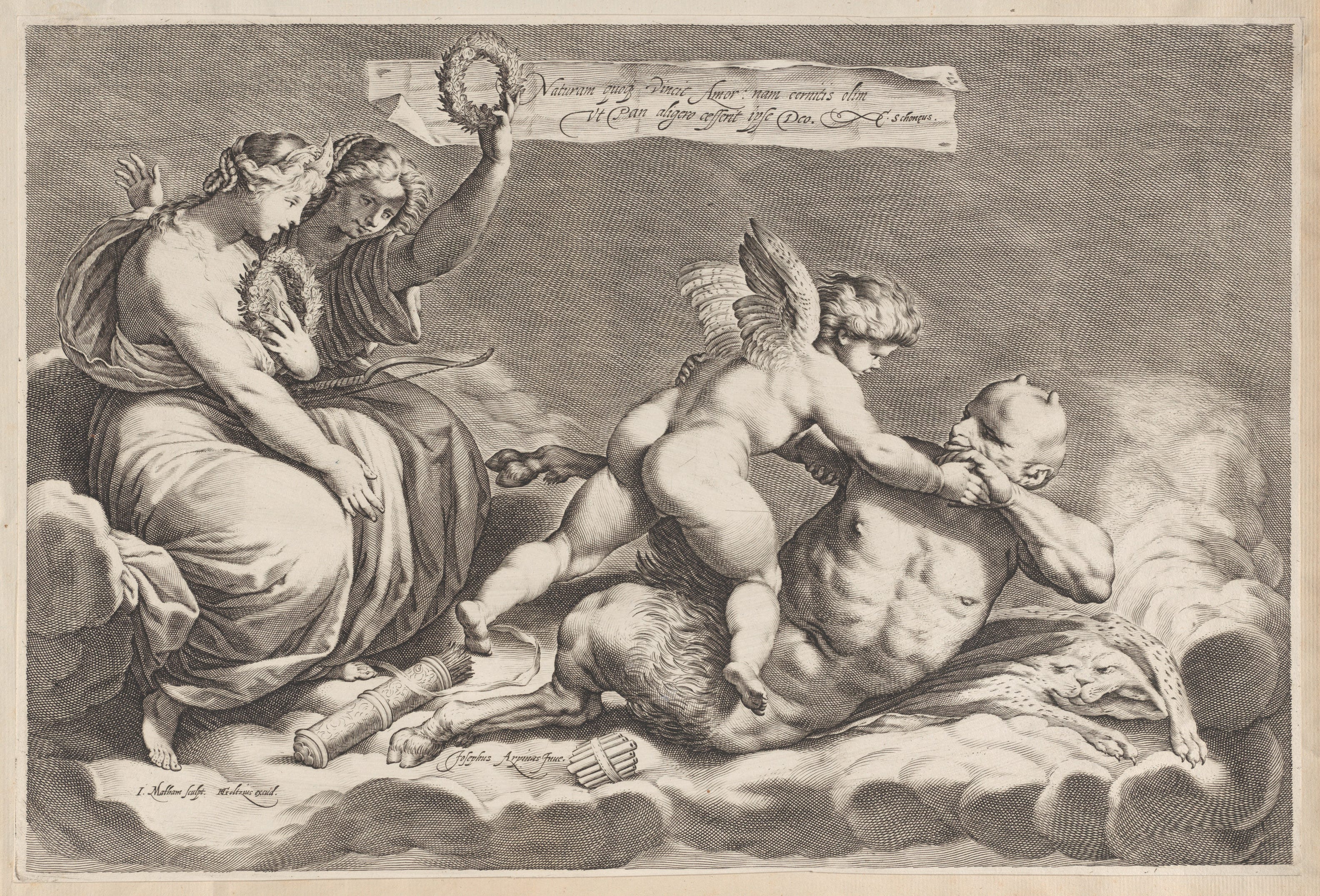
A Rider and a Dead Horse in a Landscape
Artist: Gustave Doré (French, Strasbourg 1832–1883 Paris)
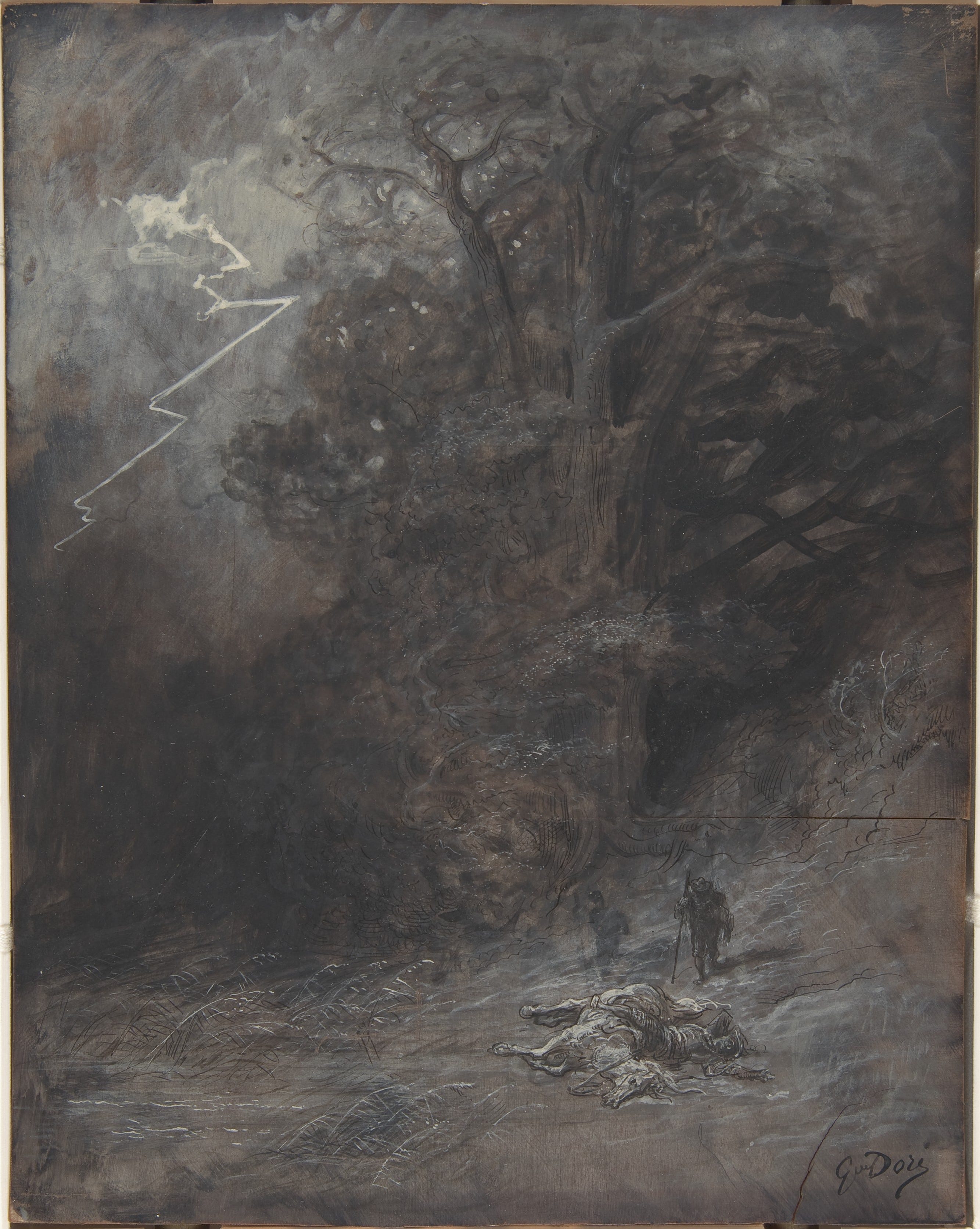
Maffet Ledger: Drawing, 1874–81
Oklahoma, Southern and Northern Cheyenne, The Michael C. Rockefeller Memorial Collection, Purchase, Nelson A. Rockefeller Gift, 1968
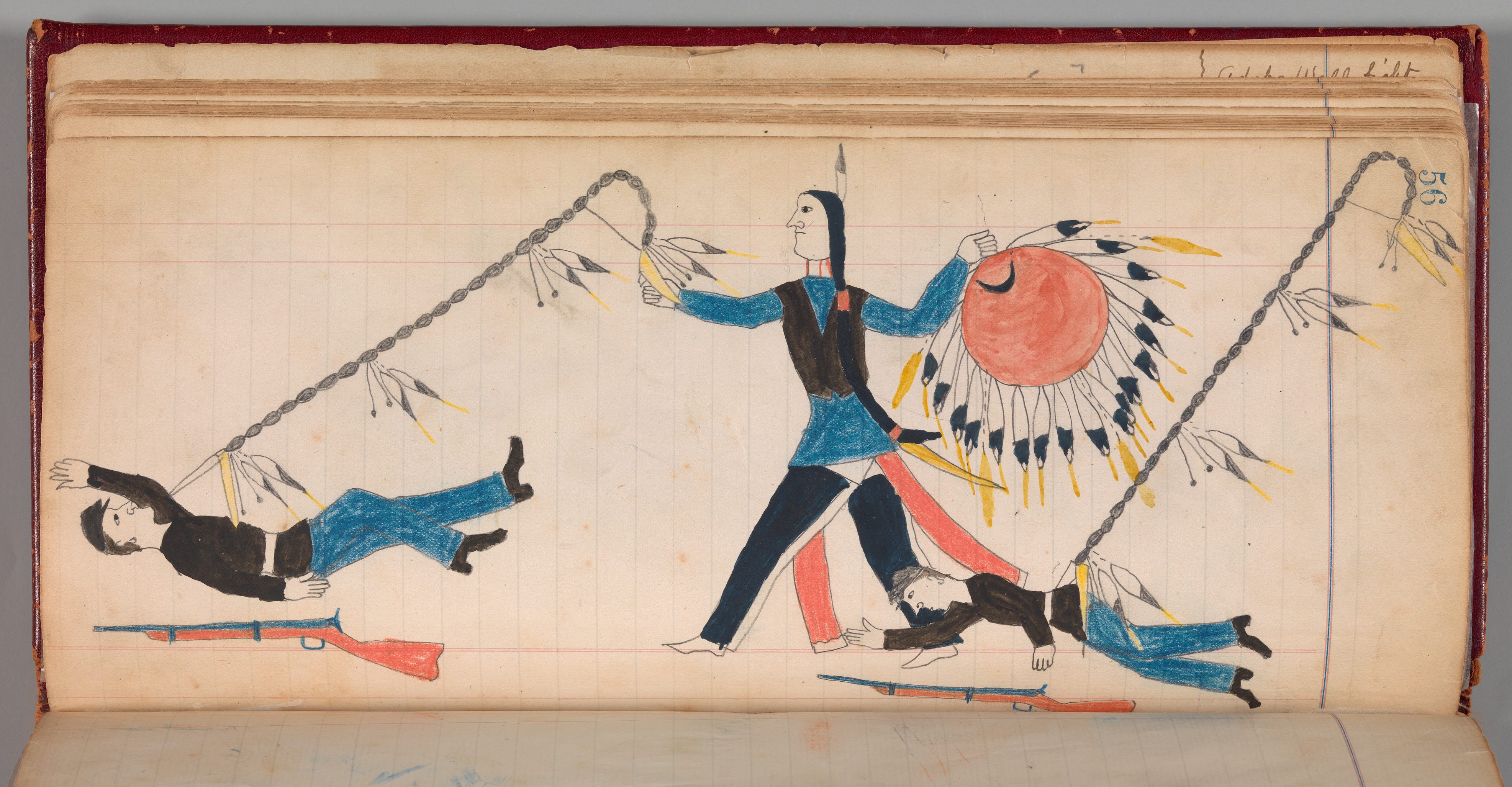
Vanneaux et Sarcelles
Félix Bracquemond French 1862
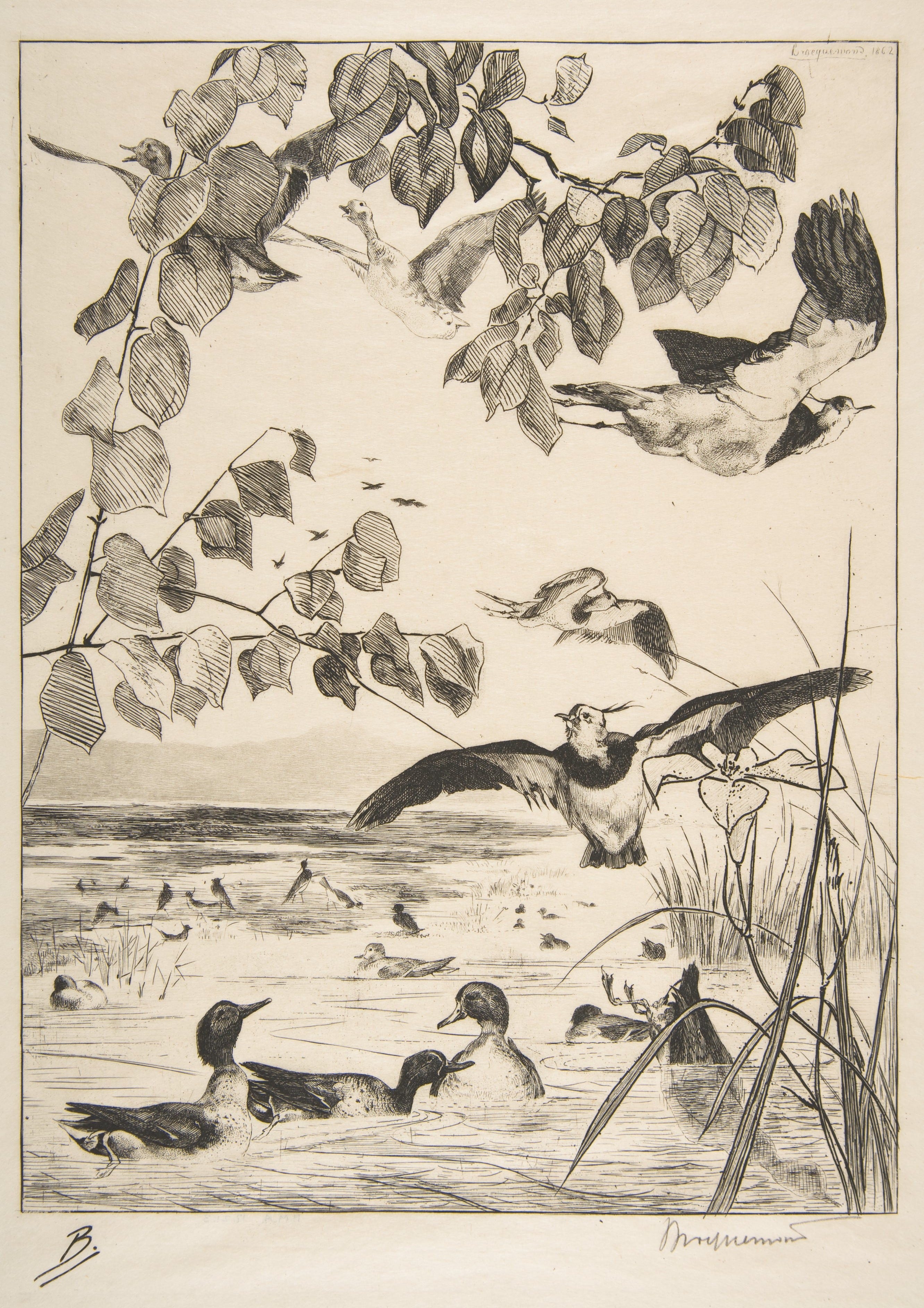
Four Things To Listen To
Three Pieces for Four Hands: No. 2, Stokes
By Philip Glass, on Alexandre Theraud and Friends
Crystal Silence: Chick Corea
Sandman: America
The Gallows From Gaspard De La Nuit (Le Gibet), Maurice Ravel
Four Things About Me
I played a lot of sports when I was younger. I was starting center on my high school basketball team, though when I switched from yeshiva to public school, I was too short for that position and made the team as a second-string forward. The school’s football coach tried to lure me with promises of potential college scholarships to try out as a wide receiver, since I was tall enough, could jump pretty high, and was a fast runner. I wasn’t interested in the rigorous practice schedule; it would have interfered with too much else that I wanted to be able to do, like march in the drum & bugle corp. I didn’t play college sports, except on my dorm’s soccer and football intramural teams. I played goalie for the former and took a turn at quarterback for the latter, except that one of my dorm mates complained that I threw the ball too hard. It’s funny how stereotypes work, though. People have assumed both because I am a college English professor and that I am not a sports fan—at least not anymore; I used to enjoy following the New York teams—that I’ve never played sports and/or that I don’t enjoy watching the games, as if the only way one can enjoy sports is to care about which team wins.
I was a very serious chess player as a teenager. Along with two friends, Michael and Robbie, I studied books of openings to the point where I knew their names and the moves by heart; I learned middle-game strategy; and I became quite adept at mating my opponent with as many different combinations of pieces as possible. Michael, Robbie, and I played regularly, and talked chess for hours. Only Robbie, if I remember correctly, went beyond that and actually got rated, though I have no idea what his rating was. I’m not sure why I stopped playing. I have on occasion played friends and really enjoyed it, but I can feel how much I’ve lost in terms of discipline, of being able to see moves ahead, to hold in my head the different moves my opponent might make, and, in general, the desire to win. Maybe that would all come back to me if I put my mind to it, I don’t know, but even as I write this, I can feel that I’m not really motivated in that direction.
I met my first Holocaust denier when I was in high school. After seventh grade, I’d switched from the public schools in my neighborhood to the yeshiva which I attended till my junior year. The yeshiva did not have a twelfth grade. Instead, you could choose between going to Israel to learn in a yeshiva there for a year or enrolling in an early college program, where you learned Torah in the morning and took college classes in the afternoon. I decided to do neither and returned to my local high school for my senior year. It was a strange experience. Before I switched schools I had been one of two, or maybe three, top students in the class, and when I returned, the classmates who had been at the top with me, and who were still at the top, were concerned that my grades would be high enough to upset their rankings and that I might even bump the girl whom everyone was sure would be the valedictorian out of that honor. For this reason, among others, they viewed me with suspicion and many would have nothing to do with me. Eventually, though, a girl named Joan invited to her house for dinner. I don’t remember anything about how the invitation came about, or that there was any particular chemistry between us—romantic/sexual or otherwise—but I do remember liking her. I also don’t remember how the subject of the Holocaust came up, but I can still see her father shaking his head at the head of the table and saying, “There’s no way the Germans killed six million Jews. Maybe a couple of thousand is all.” I have a vague memory that he launched into an explanation of how he came to that conclusion, but the sense memory I have of that moment is an overwhelming nausea. I recall nothing else about that dinner, except that I know I did not walk out. I think Joan attempted to correct her father, or at least to change the subject, but I’m not sure. I do know, though, that Joan and I never became friends after that, which was too bad. She was the first of my classmates, and the only girl, who tried to befriend me in that way.
My best friend that year was a guy named Tony. We were so close that everyone thought we were gay. I don’t know that we would ever have become lovers, but I definitely loved him. One day, when we were sitting in my room, he turned to me and said, “People are talking about us. They’re saying we’re too close.” This was news to me, though when I look back I am not surprised that I didn’t hear about it. I was too new to the school to be connected in that way to any of the various gossip networks. “Who cares what people think,” I said. “We’re friends.” His eyes went wide with a kind of sadness I don’t think I’d ever seen before. “Maybe they’re right,” he almost whispered. “Maybe we are too close.” We never talked about it again, but when we were both home from college after our freshman year, we met up at a local bar—this was back when the drinking age was eighteen—where we’d hung out a lot. I thought it was going to be just the two of us, but he brought his girlfriend with him. I remember nothing about that evening—not what we talked about, not whether I liked his girlfriend—except that it was awkward, as if he and I were strangers meeting for the first time, and I think that was the last time we spoke. Years later, we connected briefly on Facebook and I found out he was married to a man. One more bit of the story: During my freshman year of college I ended up standing in line at the registrar with the girl who sat next to me in English class. “You know,” she said, “everyone thought you and Tony were gay. That’s why none of the girls who thought you were cute ever flirted with you.” I didn’t know how to respond to that, but I don’t think ever saw or spoke to her again.
You are receiving this newsletter either because you have expressed interest in my work or because you have signed up for the First Tuesdays mailing list. If you do not wish to receive it, simply click the Unsubscribe button below.
Thanks for reading It All Connects...! Subscribe for free to receive new posts and support my work.
It All Connects is for anyone who grapples with complexity—of identity, art-making, culture, or conscience—to make a difference in their own life and, potentially, in the life of their community.
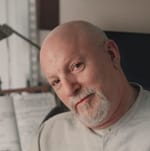






Member discussion